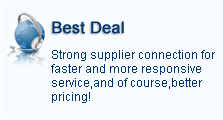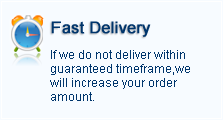1. Play Solo. I'm not saying never play in a group, but the reality is that most money making activities are done solo in this game. Just do the math. 5 people evenly dividing the loot means you will have to kill 5 times as many mobs to make the same amount of money, and the reality is that even the best group will not come anywhere close to killing at that rate. Plus, green items drop on average once per 40 kills. Blues drop more like once per a thousand kills. Most people never see a purple drop. And on top of that, not every green is the same. Some are far more valuable than others. If you are soloing, you get every drop. In a group, you need to roll. Over all, you will make a lot more money soloing than grouping. My solution is to find a group when I know I have 4+ hours to play and to solo the rest of the time.
2. Learn how to use the AH. This is a multi-parter.
(a) If you played for several hours and end the day with only a handful of auctions, you are doing something wrong. A 3 to 4 hour play session soloing should yield you 15 to 20 items worth auctioning. Keep in mind that every item that is not gray is worth something to someone. Before clicking sell to a vendor, alt-tab out to wow.allakhazam.com and look at the AH median prices for that item. You may be surprised at how valuable some items are. Many of the best AH items in the game are not green, blue or purple, but instead are white. Sell everything you can in the AH, not to the vendors. Cloth is an especially valuable thing to sell that tends to drop in large quanities when you hunt. When in doubt, put it up for sale and see what happens.
(b) Make sure you always put a buyout for an item you put for sale. Nine times out of ten, someone interested in your item in the AH wants it now, and if he can't get it now, he's not interested. Except for particularly rare items, no buyout usually means no sale. Figuring a buyout is tricky. I generally use the rule of 3 times the recommended base price for greens. Blues and purples are pretty much sky's the limit. If nobody buys it, you can always list it again. For white items, check if any others are for sale and use that as a reference.
(c) Learn your local AH price structure. Most white items drop over and over again. This means you will be selling them almost every day. Try to remember the prices you got for the next time. Jot them down if need be. Over time, you will start to get a feel for what people will pay for certain items. This lets you start to play the buy and sell game. Whenever you log into the AH, scroll through all of the items for sale and look for bargains. If you see an item for sale for 50% or lower of the expected value, buy it and put it back up for the right price. You may go days without seeing any good bargains, but those you do catch can often yield a lot of gold. I typically spend about 15 to 20 minutes at the beginning and end of each play session just scrolling through the AH looking for anything interesting. Over time, this will generate a lot of gp for you.
(d) Never pass a vendor by without checking him first. The more remote the location of the vendor, the more this rule applies. Vendors often have rare items for sale that when bought disappear for a set time period. Many of these items sell for 5 to 10 times what you pay for them in the AH. You can tell these items because they will have a number on their icon. Learn who sells what and memorize it. Trade skill recipes in particular resell very well in the AH. For example, you can buy the recipe for the superior mana potion in The Undercity for 1.2 GP and resell it in the AH for as much as 6 GP. Many food and drink vendors have rare potions for sale. A Superior Healing Potion sells for 9 SP from a vendor and resells in the AH for 50 SP. The beauty of these items is that their vendor resale price is always very low, which means they are also cheap to list in the AH. This means you can afford to list them several times until they sell and still make quite a bit off of them.
(e) Learn what stats are valued by other classes. Items sell best that boost the target stats. All classes can use stamina. Casters look to boost intelligence most of all. Fighters want to boost strength. Hunters and rogues agility. Paladins are fighters, but also want extra intelligence. Casting classes can also use some extra spirit, though many consider it worthless. Things that boost attacks, spell damage, crits, etc. are very well liked.
3. Pick up a Trade Skill. World of Warcraft trade skills are actually very profitable. If you are playing and have skipped this aspect of the game, you are missing out of a significant source of WOW Gold. You can choose to pick one of the creation/gathering combinations like herbalism/alchemy, or to do two gathering professions and sell what you get to the other players. Each method will make you money. Skinning, mining and herbalism sold through the AH can all be very profitable. Many players do a combination of two gathering skills to make money. However, you can also do well with a creation/gathering combination. The key to playing a creation/gathering trade skill well is to learn what sells and what doesn't. Probably 90% of all items made by trades are useless and will never be able to be sold to other players. I suggest you click on each item on the site and see where it's AH prices are listed as and concentrate on those items with the highest prices. Gather the ingredients yourself. This may mean devoting a couple hours a week to just running around and finding herbs or ores, but it is worth it over buying raw ingredients from other players. Use our object maps to see which zones have the most spawn points for what you need to gather and then milk that zone in the game's off hours if possible. Then make and sell the items. Except for something like healing and mana potions, you are better off only putting one of each item up at a time. Keep in mind other crafters are putting up similar items and more items for sale generally means lower prices. It's in everyone's best interest not to flood the market (well the crafters interest any ways). If you devote several hours a week to crafting, you can make quite a nice profit off of it over time. |

![]()







